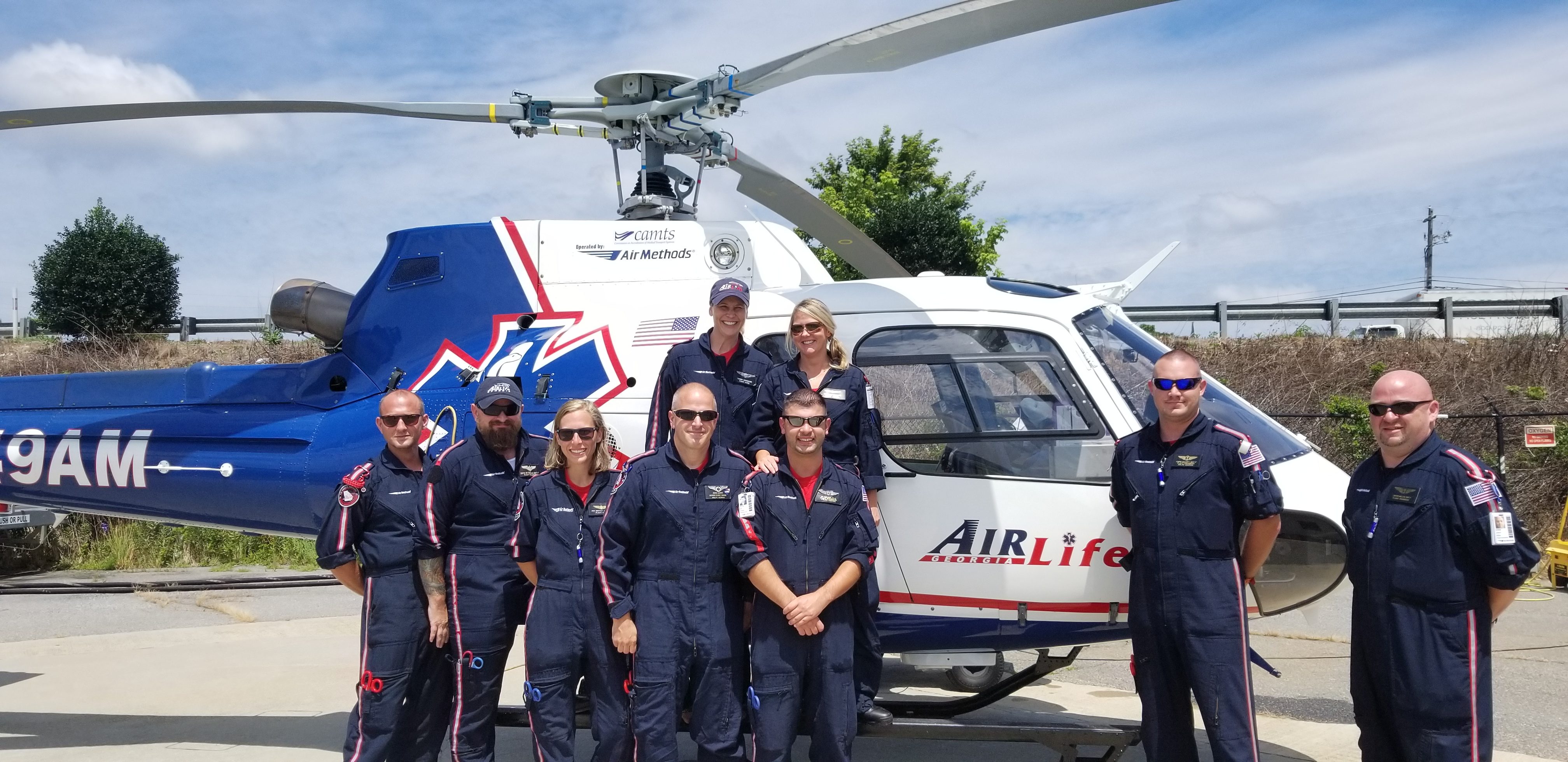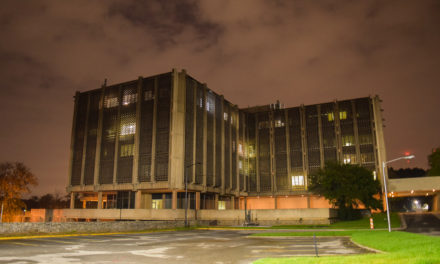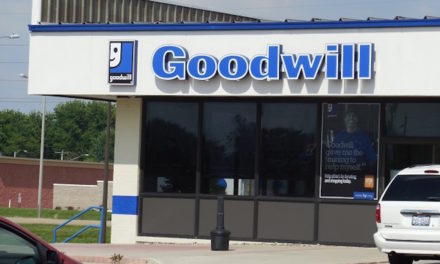
Courtesy of Amy Merritt
Anytime between the crack of dawn and nightfall, Emory students living on campus are bound to intermittently hear the droning sound of helicopters circling overhead. Far above the chatter of campus in the helicopter cabin, a team of highly trained medical experts hooks a patient to a ventilator to stabilize their vital signs until they reach a trauma center. This is the standard procedure for Air Life Georgia’s medical teams.
“There’s only space for one patient in the helicopter,” Air Life Georgia Flight Nurse and Clinical Base Supervisor Amy Merritt said. “I really feel like we get to give the best care. In an emergency room, you are pulled in so many different directions and you have people that are not that sick, whereas, on a helicopter, you get to focus 100 percent of your attention in terms of patient care on this one patient.”
While the inside of an aircraft is equipped with the same medical equipment as an intensive care unit, Merritt said her job allows more freedom than working in a hospital might.
“It’s definitely the most autonomous nursing job that I am aware of, in that we have patient care guidelines that [do] not cover every specific situation,” Merritt said. “From a nursing perspective, normally in a hospital, you are operating under doctor’s orders. In this field, it’s more like, ‘here are some guidelines, and take the best care of the patient that you can.’ ”
Operated by Air Methods Corporation and founded in 1980, Air Life Georgia transports approximately 2,500 patients per year to various hospitals, according to Air Life Georgia Medical Director Alexander Isakov. Six emergency medical helicopters operate in the greater Atlanta area as part of the Air Life Georgia fleet, the Emory University School of Medicine website said.
In the event of a medical dispatch near Emory University, helicopters are certified to take off and land at the Emory University Hospital and Children’s Healthcare of Atlanta at Egleston Hospital.
The critical care team enjoys opportunities to save patients in critical condition because those missions enable them to apply all of their medical skills and knowledge, Merritt said.
Air Life Georgia Flight Paramedic J.M. Walker and Merritt are based out of McCollum Airport in Kennesaw, Ga., and work two non-consecutive 24-hour shifts weekly. Much like firefighters, Merritt and Walker eat meals, shower and sleep at the base while waiting for a dispatch call. As part of an ongoing certification process, both also take continuing education courses to build skills, such as aviation safety.
As soon as the team receives a call, they collectively evaluate current weather conditions, the patient’s body weight and the designated landing location before accepting the mission, Merritt said.
Often, the crew responds to transfer requests for patients who need specific medical treatment or medication from a bigger hospital. Other times, the crew may be called to the scene of a car accident or a public shooting, where they must land on the road.
Dispatchers give as little information about the patient as possible when contacting Air Life, Merritt said, in order to ensure the crew’s safety.
“They intentionally don’t tell us that [the patient is] a two-year-old who was hit by a car and is dying, so that we don’t push it and potentially take a flight that is not safe because it sounds really bad,” Merritt said.
Before the crew clears themselves for take-off, Walker said that he must complete a 13-step pre-flight routine that includes filling a cooler with bags of liquid plasma and securing necessary medical supplies within the aircraft. The entire checklist takes roughly eight to 12 minutes to complete, but the team cannot rush.
“We don’t rush but we’re also not out back smoking cigarettes,” Walker said. “When I was new, what was going through my mind was, ‘don’t kill the patient,’ and even now, my number one thing is safety first.”
As the helicopter exits controlled airspace, Walker and Merritt coordinate a landing with the ground crew and describe the landing zone to the pilot.
“[The ground crew] can tell us that we are landing in a baseball field and there are no wires running through the middle of it, but also that baseball fields have high lightbulbs on the outside at the perimeter,” Walker said.
Merritt and Walker said they must remain vigilant during the flight as they scan the views from their respective sides of the aircraft, to alert the pilot about obstacles, such as a tree or light pole, that may obstruct the flight path.
“You have to be clear and precise — you can’t drone on for two minutes about something and [you] have to be direct,” Merritt said. “You also have to be able to receive direct communication because, both on an aviation and medical side, it’s time sensitive and is life or death. You have to … not get your feelings hurt.”
Unlike ground ambulance care, Merritt and Walker are certified to give blood and plasma or incubate patients during the flight, according to Isakov. With the expanded range of treatment options, Air Life Georgia nurses and paramedics must anticipate cases that were not taught in textbooks.
Merritt recalled a situation in which a woman needed a certain medicine to survive an inter-hospital transport. However, none of the crew members knew the dosage to stabilize her vital signs. By quickly thinking on her feet, Merritt found a nearby hospital with a balloon pump to support the patient’s heart function and prolong her life until heart surgery.
Since then, Air Life Georgia has established a medical guideline that delineates the proper dosage for the new medication, Merritt said.
“A flight nurse’s job is to improvise and overcome,” Merritt said. “I know it sounds really cheesy, but it’s life.”
Although the job requires Merritt to be away from her family, she said that the chance to save someone’s life makes every trip worth the sacrifice.
“I would put any of my family members on helicopters without hesitation because I think we do a really good job with these high-level acute patients,” Merritt said.
Varun Gupta (20C) is studying political science and philosophy. He seeks discomfort by shadowing people in different professions, such as campus security, a sous chef and bar manager. Apart from the Wheel, you can catch him playing ultimate frisbee or recounting a crazy travel experience from one of 21 different countries that he has visited.





